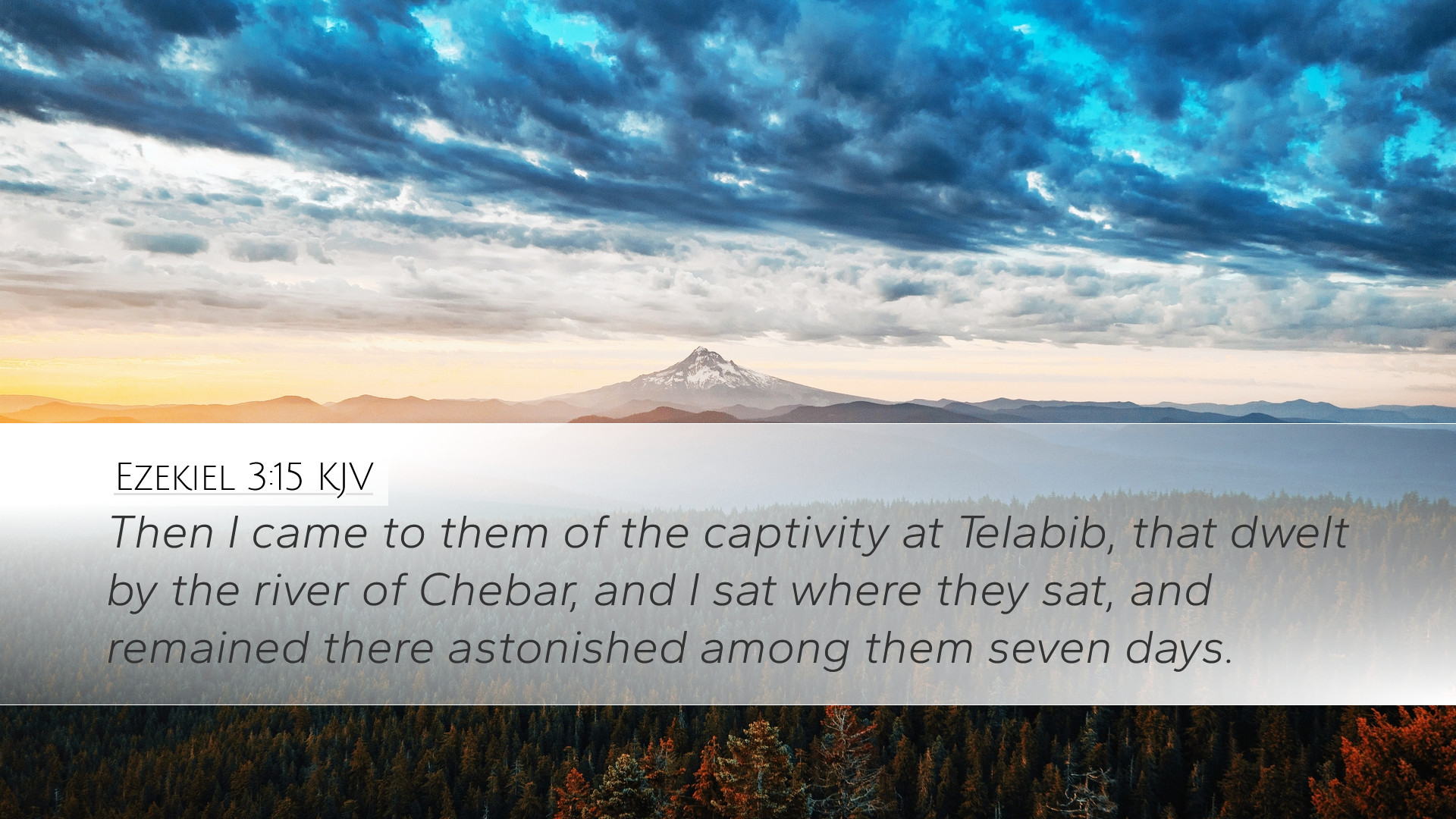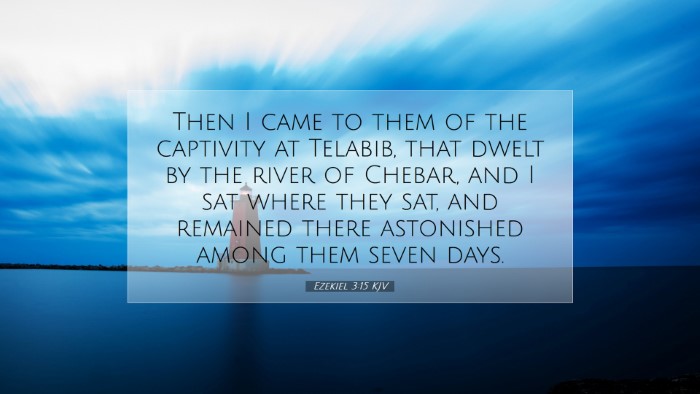Bible Commentary on Ezekiel 3:15
Verse Context: The verse states: "Then I came to them of the captivity at Tel-abib, that dwelt by the river of Chebar, and I sat where they sat, and remained there astonished among them seven days."
Summary of Insights
This commentary provides a synthesis of insights regarding Ezekiel 3:15, drawing from various public domain sources to deepen the understanding of the text for pastors, students, theologians, and Bible scholars.
Introduction to the Prophet Ezekiel
Ezekiel was a priest and prophet who lived during the Babylonian exile. His prophetic ministry began around 593 BC and closely interacted with the socio-political climate of his time. He was called to be a watchman for the house of Israel, delivering God’s message both of judgment and hope.
Contextual Analysis
- Location: Tel-abib - This was a location near the river Chebar where the exiles gathered. It symbolizes both physical displacement and spiritual estrangement.
- Duration: Seven Days - The act of sitting among the captives for seven days signifies a period of mourning and contemplation. It reflects his empathy and connection to the suffering of his people.
- Atmosphere: Astonishment - Ezekiel's astonishment represents both a personal response to the profound sorrow of the exiles and an acknowledgment of the severity of the situation.
Theological Implications
This passage invites theological reflection in multiple dimensions:
- Identification with Suffering: Ezekiel’s action of sitting where they sat underscores the importance of empathy in pastoral ministry. It suggests that a leader must first understand the plight of those he serves.
- Call to Witness: By immersing himself in the exiles’ experiences, Ezekiel exemplifies the kind of identification that is necessary for effective prophetic ministry.
- Divine Presence in Isolation: The mention of the captives by the river, amidst their dislocation, illustrates God’s continued presence among His people even in exile, reaffirming His commitment to their restoration.
Commentary Insights
Matthew Henry's Commentary
Matthew Henry emphasizes that Ezekiel's astonishment indicates the depth of the sorrow of the exiles. He notes that the prophet's prolonged silence and reflection were necessary, not only for his personal processing of the situation but also as preparation for the messages he was to deliver.
Albert Barnes' Notes
Albert Barnes elaborates on the significance of the river Chebar, indicating it as a boundary between the familiar land of Israel and the alien land of Babylon. He points out that Ezekiel’s action can be seen as a profound moment of shared grief, recognizing that his calling required immersion in the people’s plight.
Adam Clarke's Commentary
Adam Clarke focuses on the role of the prophet as a faithful witness. He asserts that the duration of seven days speaks to a thorough engagement with the experiences of the exiles. He underscores the importance of fasting and introspection for those called to lead, as it prepares them spiritually to deliver God’s messages.
Practical Applications for Ministry
The insights from Ezekiel 3:15 encourage several practical applications for ministers and church leaders:
- Empathy in Ministry: Leaders are called to develop a deep understanding of the emotional and spiritual states of their congregations.
- Listening to God: Before proclaiming God’s word, it is vital to spend time in silence and reflection, allowing for the Holy Spirit to speak.
- Community Engagement: Surrounding oneself with those who are experiencing pain and suffering helps to cultivate meaningful relationships and a more effective ministry.
- Preparation for Prophetic Ministry: Understanding the weight of one’s calling can prepare leaders to convey messages of hope and restoration.
Conclusion
Ezekiel 3:15 serves as a profound reminder of the burdens of prophetic ministry—the necessity of sharing in the grief of others and preparing one's heart through genuine engagement in their suffering. This verse highlights the relational aspect of ministry, pointing towards the importance of empathy, reflection, and divine presence in times of crisis.


